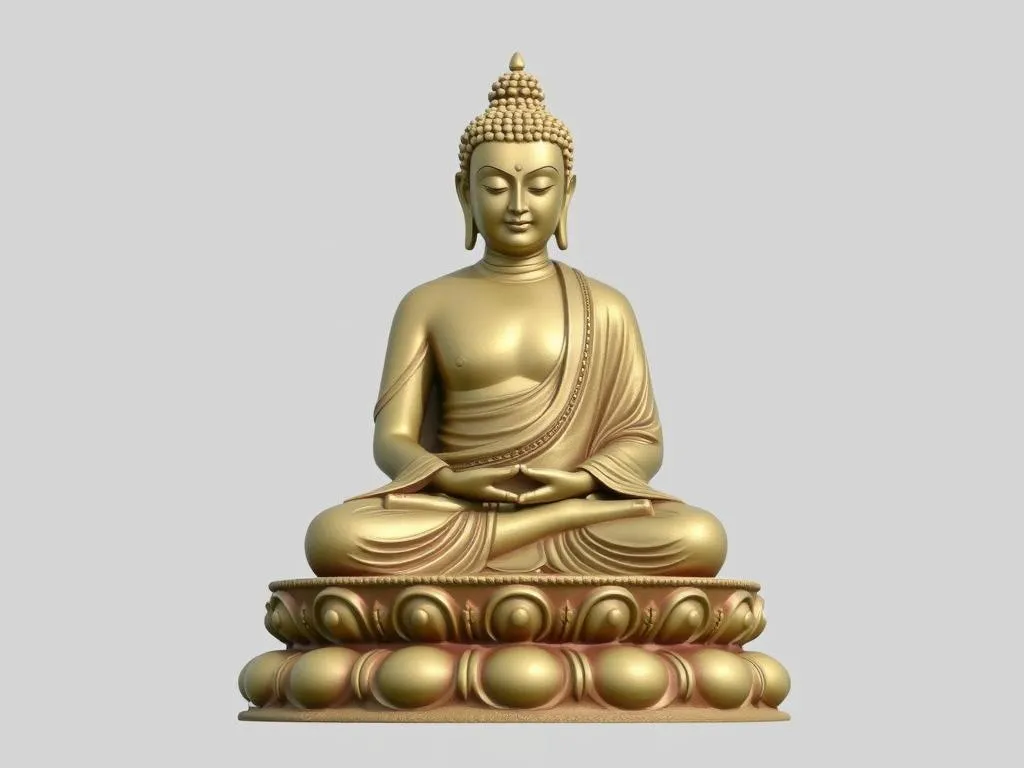The concept of ‘buddha spiritual meaning’ has captivated the minds of spiritual seekers for centuries. Beyond the iconic image of the serene, cross-legged figure, the Buddha’s teachings offer a profound and transformative journey towards inner peace, self-discovery, and the realization of our true nature. In this article, we will explore the deeper spiritual significance of the Buddha and how his wisdom can guide us on our own paths of awakening.
In the first 100 words, we must include the phrase ‘buddha spiritual meaning’:
The buddha spiritual meaning transcends the physical representation of the Buddha and invites us to delve into the very essence of our being. By understanding the core principles and practices of Buddhism, we can unlock the door to a more fulfilling and enlightened existence. Whether you are new to the spiritual realm or have been on a lifelong journey of self-exploration, the buddha spiritual meaning holds the potential to profoundly impact your life and lead you towards a state of inner harmony and profound insight.
Key Takeaways:
1. The buddha spiritual meaning emphasizes the importance of self-awareness and the cultivation of mindfulness.
2. The Buddha’s teachings offer guidance on overcoming suffering and cultivating inner peace.
3. Embracing the buddha spiritual meaning can lead to a deeper understanding of the interconnectedness of all things.
4. The path of the Buddha is not about dogma or rigid beliefs, but rather a personal journey of discovery and transformation.
The Essence of the Buddha Spiritual Meaning
At the heart of the buddha spiritual meaning lies the fundamental teaching of the Four Noble Truths. These truths, as revealed by the Buddha, provide a clear and insightful framework for understanding the nature of human suffering and the path to its cessation.
The First Noble Truth acknowledges the reality of suffering (dukkha) in our lives. From the inevitable experiences of pain, loss, and dissatisfaction to the more subtle forms of discontent and unease, the Buddha recognized that suffering is an inherent part of the human condition. By acknowledging this truth, we can begin to approach our struggles with greater understanding and compassion.
The Second Noble Truth delves into the cause of suffering, which the Buddha identified as craving (tanha) or the endless desire for pleasure, possessions, and the perpetuation of the ego. This insatiable thirst for more, coupled with the aversion towards unpleasant experiences, is the root cause of our suffering.
The Third Noble Truth offers the solution to this predicament, stating that it is possible to end suffering through the cessation of craving. This realization points to the inherent potential within each of us to transcend the cycle of suffering and attain a state of profound peace and liberation.
The Fourth Noble Truth outlines the path to this liberation, known as the Eightfold Path. This comprehensive system of ethical conduct, mental cultivation, and wisdom development provides the practical guidance necessary to achieve the ultimate goal of the buddha spiritual meaning: the realization of enlightenment, or nirvana.
Cultivating Mindfulness and Self-Awareness
At the core of the buddha spiritual meaning is the practice of mindfulness – the cultivation of present-moment awareness and the ability to observe our thoughts, emotions, and experiences with a clear and non-judgmental mind. The Buddha emphasized the importance of mindfulness as a means to overcome the habitual patterns of the mind that perpetuate suffering.
By training ourselves to be fully present and attentive to the here and now, we can begin to break free from the constant mental chatter and reactive tendencies that often govern our lives. Mindfulness allows us to observe our thoughts and emotions with clarity and compassion, rather than becoming entangled in them.
As we deepen our practice of mindfulness, we also cultivate a greater sense of self-awareness. We start to recognize the impermanent and interconnected nature of all phenomena, including our own thoughts, emotions, and sense of self. This insight can lead to a profound shift in our perspective, enabling us to let go of the rigid and limiting beliefs that have been shaping our experiences.
The Path of Compassion and Loving-Kindness
The buddha spiritual meaning not only emphasizes the importance of personal transformation but also extends its teachings to the realm of compassion and loving-kindness towards all beings. The Buddha’s teachings encourage us to cultivate a deep and unconditional love for ourselves and others, recognizing the inherent interconnectedness of all life.
Through practices such as metta (loving-kindness) meditation, we can nurture a sense of goodwill and care towards ourselves, our loved ones, and even those who challenge us. By radiating this energy of compassion, we can transform our relationships and contribute to the greater good of humanity.
As we embody the spirit of compassion, we also cultivate a deep respect for the sanctity of all life. The buddha spiritual meaning encourages us to live in harmony with nature and to minimize harm to all sentient beings. This ethical framework can inspire us to make conscious choices in our daily lives that reflect our reverence for the interconnected web of existence.
The Concept of Non-Duality and Interconnectedness
A fundamental aspect of the buddha spiritual meaning is the understanding of non-duality and the interconnectedness of all things. The Buddha taught that the illusion of separation between self and other, mind and body, or individual and the universe, is the root cause of our suffering.
By embracing the concept of non-duality, we can transcend the limiting belief that we are separate and independent entities. Instead, we come to recognize that we are deeply interconnected with all of life, and that our actions and choices have a ripple effect on the entire world around us.
This understanding can lead to a profound shift in our perspective and the way we engage with the world. We may find ourselves more attuned to the subtle energies and interconnections that permeate every aspect of our existence. This can inspire us to live more mindfully, to make choices that consider the wellbeing of all, and to cultivate a deep sense of reverence for the sacredness of life.
The Pursuit of Enlightenment and Inner Peace
The ultimate goal of the buddha spiritual meaning is the attainment of enlightenment or nirvana – a state of profound inner peace, freedom from suffering, and the realization of our true nature.
The Buddha taught that this state of enlightenment is not something that is outside of us, but rather a deep understanding and integration of the fundamental truths of existence. It is the recognition that our true self is not the limited and conditioned ego, but rather a boundless awareness that transcends all concepts and labels.
Through the cultivation of practices such as meditation, contemplation, and ethical conduct, we can gradually peel away the layers of conditioning and illusion that obscure our innate wisdom and inner peace. As we deepen our understanding and embodiment of the buddha spiritual meaning, we may experience moments of profound clarity, joy, and a deep sense of interconnectedness with all of life.
Conclusion
The buddha spiritual meaning offers a profound and transformative path towards inner peace, self-discovery, and the realization of our true nature. By embracing the core teachings of the Buddha, such as the Four Noble Truths, the practice of mindfulness, and the cultivation of compassion, we can unlock the door to a more fulfilling and enlightened existence.
As we deepen our understanding and embodiment of the buddha spiritual meaning, we may find ourselves navigating life’s challenges with greater clarity, equanimity, and a profound sense of interconnectedness. This journey is not about perfection or the attainment of some lofty ideal, but rather a continuous process of self-discovery, growth, and the realization of our inherent wholeness.
Embrace the buddha spiritual meaning and embark on a transformative path that can lead you to greater inner peace, compassion, and the realization of your true potential as a conscious, interconnected being.








